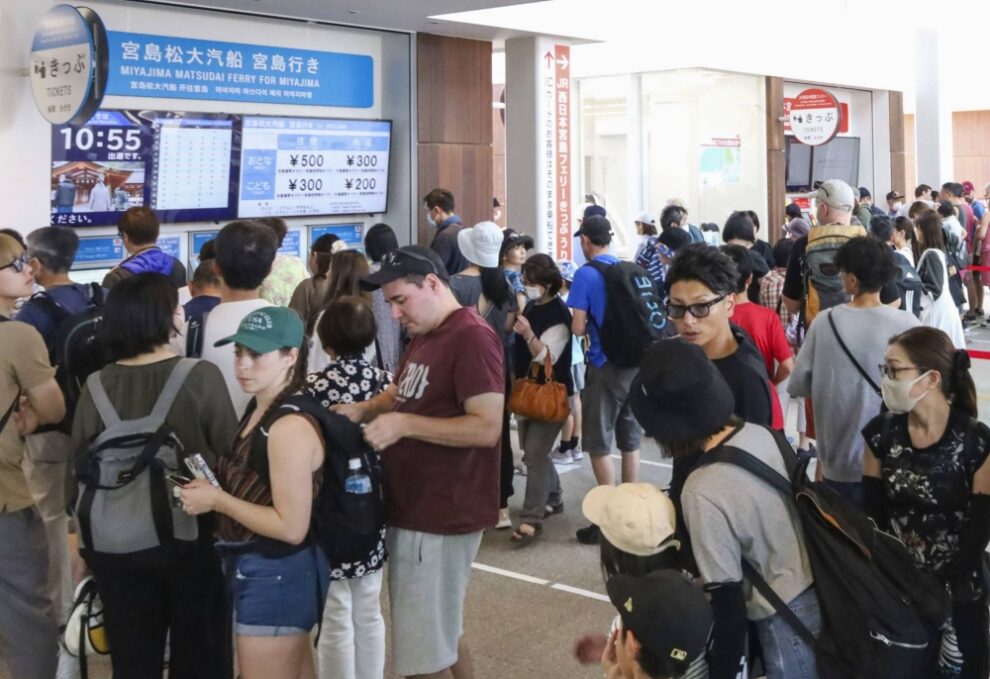As foreign visitors return in droves following the COVID-19 pandemic, Japan has outlined new plans to counter problems associated with overtourism, including bolstering transportation systems in major cities and drawing visitors to lesser-known rural areas.
The tourism ministry unveiled its overtourism prevention plan at a meeting on Wednesday, summarizing the various efforts that have begun to be made in areas around the nation.
The new plan includes a measure to strengthen infrastructure — especially boosting bus and taxi fleets — in order to welcome tourists and better cope with overcrowding in popular cities. Taxi companies in some cities are struggling to keep up with demand.
The plan suggests sending support to areas that experience a significant uptick in tourists during certain seasons — such as Niseko, Hokkaido, during ski season — so that taxi companies can offer increased service during those times.
It also suggests setting up direct bus routes to popular tourist destinations from major stations specifically for tourists. Another suggestion is to change fare prices depending on the time to incentivize travel during nonpeak hours.
The ministry also emphasized the importance of herding visitors away from major hotspots like Tokyo and Kyoto to lesser-known areas in order to reduce the concentration of tourists.
The plan elaborated on the efforts of the 11 model tourist destinations — places such as Ise-Shima in Mie Prefecture and eastern Hokkaido — that were chosen earlier this year as locations where visitors can experience nature and other unique attractions that cannot be found in big cities.
In these areas, the ministry plans to support local municipalities in promoting specific experiences such as adventure tourism in untouched, natural areas or overnight stays in historic villages.
Inbound tourism is on the rise, with the number of visitors to Japan returning to pre-pandemic levels. The total number of tourists in September this year was back to 96% of what it was in 2019, with over 17 million people having visited between January and September, according to the Japan Tourism Agency.
Yet, the majority of tourists tend to stay in Tokyo, Osaka or Kyoto, resulting in overcrowding in popular tourist spots and a strain on transportation systems.
“With tourism minister Tetsuo Saito at the center, I would like all related ministries to work to incorporate the content of the prevention plan into economic policies in order to create a sustainable tourist location where everyone can ‘live, visit and accept (tourists),’” Prime Minister Fumio Kishida said at the meeting on Wednesday.
The ministry also expressed its intention to support local municipalities and residents by sharing information on overtourism countermeasures being considered in different areas around Japan to provide inspiration, as well as setting up a consultation counter where municipalities can ask for advice.
Source : Japan Times










